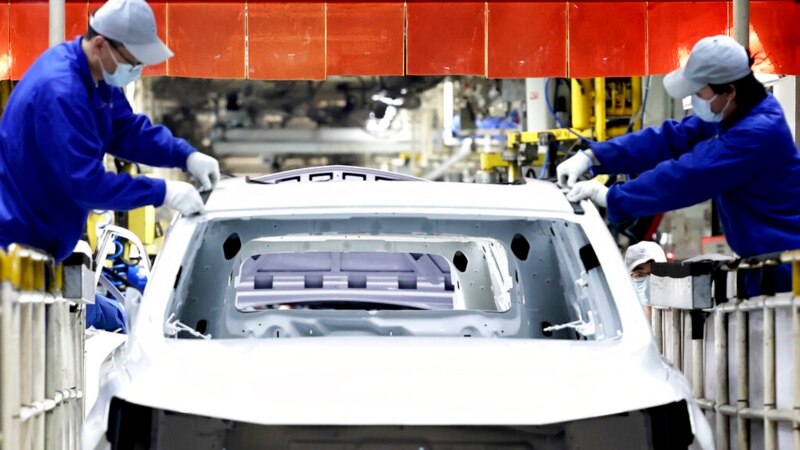
Chinese Premier Li Keqiang has suggested that China's current job market is "complicated and severe" as the country maintains "unswerving adherence" to the "zero-COVID" policy, whose lockdowns are causing a severe economic contraction throughout the nation. Derived from a survey of 430 private industrial companies, the Caixin purchasing managers' index, a reliable indicator for assessing the economy, fell to 36.2 in April from 42 in March, according to a survey released by IHS Markit last week. A reading below 50 indicates contraction, while anything above that gauge shows expansion. "Demand was under pressure, external demand deteriorated, supply shrank, supply chains were disrupted, delivery times were prolonged, backlogs of work grew, workers found it difficult to return to their jobs, inflationary pressures lingered, and market confidence remained below the long-term average," said Wang Zhe, senior economist at Caixin Insight Group. "Keeping market players and securing jobs will win the future," Li said Saturday, during a national video and teleconference on stabilizing employment, according to the China Daily, a state-controlled news outlet. Li, who holds the number two position in the Chinese Communist Party (CCP), urged all regional government departments to "conscientiously implement the decisions and arrangements" of the party's Central Committee and the State Council to maintain jobs and economic stability. "Stabilizing employment is critical to people's livelihood and is the key support for the economy to run within a reasonable range," he said, as he recommended steps for local and provincial governments. Li asked enterprises to resume production while adhering to the controls designed to contain the spread of COVID-19. Lockdowns in more than 20 cities, including Shanghai, have frustrated residents and constrained China's economic growth. WHO Director-General Tedros Adhanom Ghebreyesus said on Tuesday that China's zero-tolerance strategy was not sustainable, a comment Foreign Ministry spokeperson Zhao Lijian called "irresponsible" a day later. Global banks such as UBS, Standard Chartered, DBS, Barclays and Bank of America have downgraded their 2022 GDP (gross domestic product) forecasts for China. China's first-quarter GDP for 2022 expanded by 4.8% year-on-year, higher than expected but still below Beijing's full-year target of 5.5%, according to Xinhua, a state-affiliated news outlet. Liu Meng-chun, managing director at Chung-Hua Institution for Economic Research in Taipei, Taiwan, said the slowdown is attributable not only to China’s COVID policies but also to a crackdown on private enterprise, especially in the technology sector. He foresees the state taking a financial stake in some of the technology giants to get more control over their operations but said the change would be more one of style than of substance. "If 1% equity is used to enter the core decision-making circle of its (technology companies) and becomes internal supervision, it represents a change in the supervision model," Liu said. Ming-Fang Tsai, a professor at the Department of Industrial Economics at Tamkang University in Taipei, said that even if Beijing stops suppressing tech giants, it would be difficult to return to the era of rapid economic growth. "Alibaba and Tencent are laying off workers significantly, and now (Beijing) has said that it will stop (the suppression). It will not have any impact on China's economy," Tsai told VOA Mandarin. The tech layoffs fit into a larger picture as China's economy has been hit by the "five crises" of employment, exports, private investment, real estate and debt defaults, leading its economy into a downward cycle, according to Wu Jialong, a Taipei economist. Reduced demand for China's exports, "will reduce employment, income and consumption power, which will affect real estate," Wu said. "In addition, industrial supervision and common prosperity will also make things worse, which will hurt the willingness and ability of private investment and eventually lead to a crisis of debt default." According to Taiwanese economist Liu, if China's zero-COVID policy lasts for a long time, industries such as real estate, finance and technology will be hit hard, as will retail and consumer services. The combination, he said, will delay the country's "common prosperity" campaign launched by President Xi Jinping. "The control of the epidemic will make income distribution more uneven. Polarization will become more serious," Liu told VOA Mandarin. According to Frank Tian Xie, an associate professor of marketing at the University of South Carolina Aiken, even if the zero-COVID policy caused the Chinese economy to collapse, Chinese authorities would be more likely to return to the planned economy of the Mao Zedong era than to adjust to current forces. "Now the CCP has launched a lot of 'supply and marketing cooperatives,' 'unified purchase and unified sales,' just to deal with the economic impact that the city lockdowns may bring, because it wants to suppress the people, and the government controls all goods, sources of goods and channels to achieve its political goals." Xie told VOA Mandarin. "Unified purchase and unified sales" refers to a policy implemented by China from the 1950s to the 1980s to exert state control over agricultural resources such as grain and cotton. The Chinese government purchased these products in rural areas and rationed them out to city dwellers. In July last year, China began a pilot program of "supply and marketing cooperatives." This recalls how the CCP acted as it established a government in 1949 during a post-civil war period of material scarcity. An earlier version of this story misspelled Frank Tian Xie's name. VOA regrets the error.
Most Read